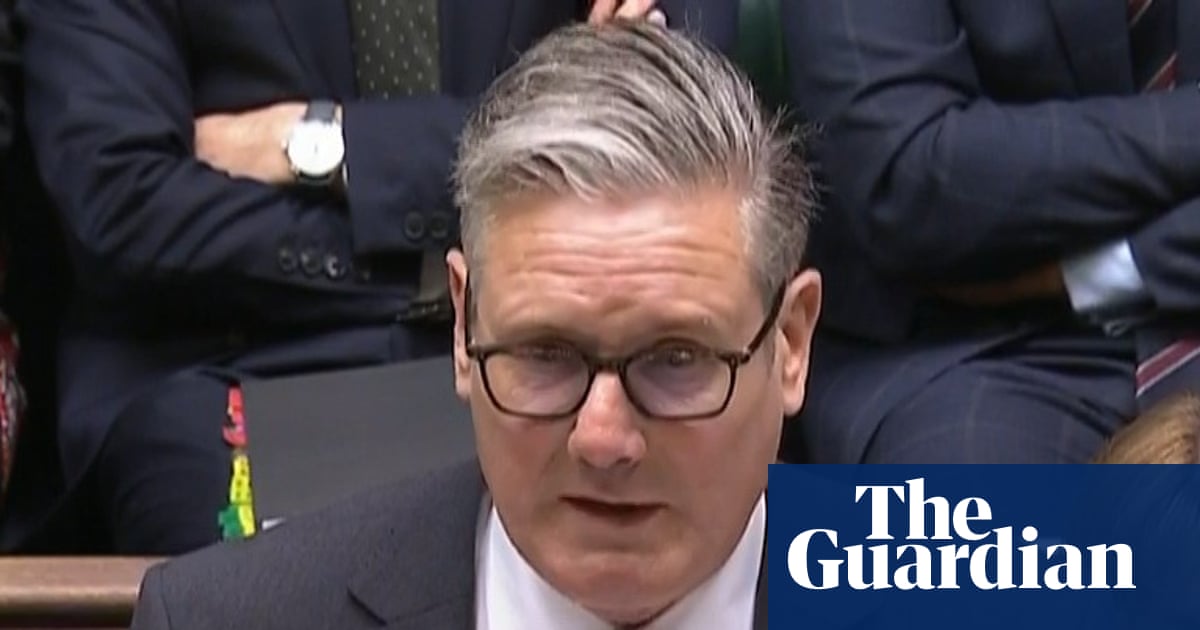Ministers are facing calls to publish legal advice given to the government on Israel’s war against Iran after reports emerged that the attorney general had warned that any UK involvement beyond defensive support would be illegal.
Richard Hermer, the government’s most senior legal officer, is said to have raised concerns internally about the legality of joining a bombing campaign against Iran.
Ed Davey, the Liberal Democrat leader, said the government should publish Hermer’s advice. “The last thing we need is for the UK to be dragged into another illegal war in the Middle East by the US,” he said.
An official who had seen Hermer’s official legal advice told the Spectator, which first reported the story, that “the AG has concerns about the UK playing any role in this except for defending our allies.”
It comes as the UK steps up efforts to persuade Donald Trump’s administration to refrain from joining Israel’s airstrikes in Iran. Keir Starmer said on Thursday there was a “real risk of escalation” in the Middle East.
Asked about reports the US president had already approved a plan to attack Iran but had not yet decided whether to go ahead, the prime minister said: “The situation in relation to Israel-Iran is obviously fast-moving and in those circumstances, it’s really important to cling on to the key principles here.
“Obviously all of us, UK included, are very concerned about the nuclear programme that Iran is developing, we’ve long been concerned about that. Also, [we] completely recognise Israel’s right to self-defence, but the principle is that we need to de-escalate this.
“There’s a real risk of escalation here that will impact the region, possibly beyond the region, akin to Gaza, and obviously it’s already having an impact on the economy. So I’ve been absolutely clear we need to de-escalate this. Yes, the nuclear issue has to be dealt with, but it’s better dealt with by way of negotiations than by way of conflict.”
David Lammy, the foreign secretary, is to meet Marco Rubio, the US secretary of state, in Washington DC on Thursday as the US weighs up its options. Whitehall sources said his message would be that the UK’s priority is diplomacy and de-escalation.
So far the UK has not played any role, and it has not been involved in repelling Iranian missiles directed at Israel.
Starmer is considering whether to provide the US with military support if Trump decides to bomb Iran, and whether to approve the use of the Diego Garcia base in the Indian Ocean for the attack. Hermer’s advice could limit the degree of UK support for the US.
There is no requirement for the government to hold a vote on military action, but in practice he would come under pressure to do so if the UK joined in airstrikes. There was no vote to give permission for UK forces to conduct airstrikes in Yemen, which are ongoing this year.
No 10 refused to comment on Hermer’s legal advice about joining any US action in Iran.
A spokesperson for the attorney general’s office said: “By longstanding convention, reflected in the ministerial code, [the question of] whether the law officers have been asked to provide legal advice and the content of any advice is not routinely disclosed. The convention provides the fullest guarantee that government business will be conducted at all times in light of thorough and candid legal advice.”
The prime minister chaired an emergency Cobra meeting on Wednesday to discuss a range of scenarios and ongoing diplomatic efforts.
Trump has yet to make a final decision on whether to launch strikes against Iran. The president has suggested to defence officials it would make sense to do so only if the so-called bunker buster bomb is guaranteed to destroy the country’s critical uranium enrichment facility, which is between 80 and 90 metres inside a mountain at Fordow.
Israel and Iran have been exchanging fire for days after Israel launched airstrikes that it said were aimed at preventing Tehran from developing a nuclear weapon. Iranian officials claim their nuclear programme is peaceful and that Israel has caused hundreds of civilian casualties.
Taking Fordow offline – either diplomatically or militarily – is seen as central to preventing Iran from acquiring nuclear weapons, after the International Atomic Energy Agency found that the site had enriched uranium to 83.7%, close to the 90% needed for nuclear weapons.
Miatta Fahnbulleh, an energy minister, said Starmer would take any decisions with a “cool, calm head” and be guided by international law.
“Legal advice is for the prime minister and I think that’s where it will stay, and you can understand why I won’t comment on that,” she told Times Radio. “But what I will say is that we have a prime minister who is a lawyer, and a human rights lawyer, he will obviously do everything that is in accord with international law.”
However, the shadow foreign secretary, Priti Patel, said the UK could “hide behind legal advice at a time of crisis”.
Asked if she believed Hermer was right to sound a warning, Patel told Times Radio: “I don’t think we can hide behind legal advice at a time of crisis and national security when we have to work alongside our biggest ally in the world, the United States, when they look to us for potentially … setting out operational activities through our own military bases.”

 2 months ago
38
2 months ago
38

















































